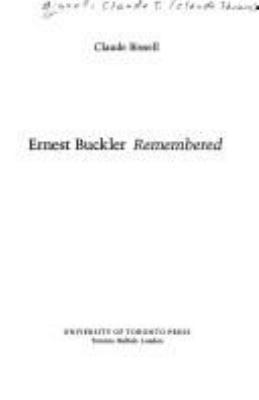
print
|
Ernest Buckler remembered
Copies
1 Total copies, 1 Copies are in,
0 Copies are out.
Language
English
Dimensions
24 cm.







